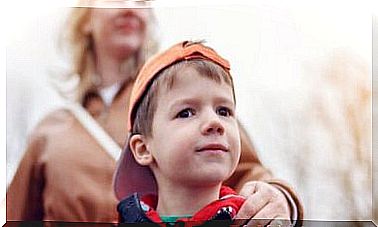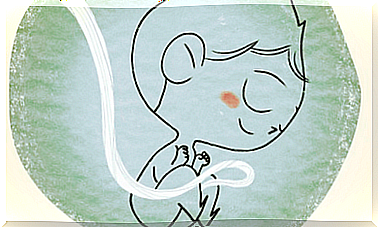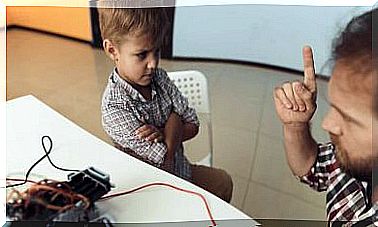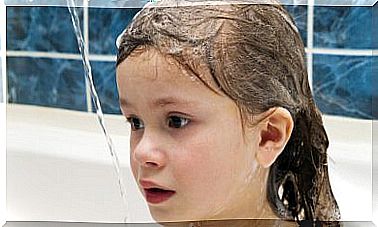Onychophagia In Children – Should I Be Concerned?
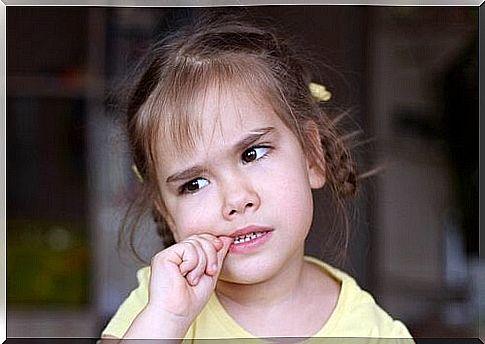
Onychophagia consists of constantly biting nails, and has several different causes. It can lead to health problems if it persists over a long period of time.
We should pay attention to, and help children, to stop biting their nails before it becomes a bad habit. The first thing we need to do is identify the cause of this behavior.
Causes of onychophagia in children
- Stress
- Anxiety
- Boredom
- Emotional events such as the death of a loved one, parents arguing, or uncertainty about the arrival of a new sibling.
Consequences
Onychophagia can cause several health problems for children of varying intensity. We will explain the most common consequences below:
Dental problems
- Abnormal grouping of their teeth. It can cause deformation of the archway. It can sink and cause the teeth to become deformed. This problem will require the help of a dentist.
- Inflammation of the gums due to the introduction of microorganisms present under their nails. It can cause inflammatory conditions such as gingivitis and periodontitis.
- Onychophagia can cause pain during chewing of food, due to constant use of the jaws.
- Halitosis (bad breath) can occur due to lack of oral hygiene or infections.
Digestive problems
- Depending on the intensity and duration of this habit, they can cause obstruction in the gut.
- Nail biting can lead to various types of infections, caused by pathogens that are not usually dangerous. They only pose a health risk when the immune system is inadequate.
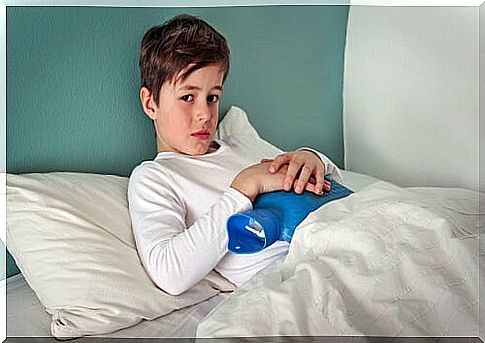
Dermatological problems
- Bacterial infections under their nails. It occurs due to the filtration of saliva, which thereby causes inflammation under their fingers. This can be painful.
- Depending on the intensity, in the long run, onychophagia can cause deformation of the fingers. It can also cause permanent damage to the nails.
- Ulcerative infections can occur when they have torn, bitten or caused sores on their skin. These wounds can easily become infected, due to a large number of bacteria present in the saliva.
- Another problem is appearance. Onychophagia is very aesthetically unattractive and can have a negative impact on children’s social lives.
What can you do?
In addition to the fact that nail biting can seem uncomfortable, the swollen fingers, gums and bad breath can have an effect on the child’s self-esteem.
Why? Because its appearance can encourage ridicule and rejection from other children. This can ultimately cause children to isolate themselves, and in extreme cases, they can develop social anxiety.
Onychophagia in children usually does not require pharmacological treatment. However, due to its compulsive nature, it is sometimes necessary to seek the help of a psychologist who can initiate positive therapy.
It is very important to us that we do not judge our children. We should give advice, from the professionals, in a good way. If we do so firmly, we can help eradicate this bad habit.
Getting children to stop biting their nails will prevent them from growing up with various ailments. It is even important in terms of preventing addiction to tobacco and other drugs.
Remember that these addictions are just an escape from accumulated tensions, and poor handling of emotions and thoughts.
Do not ignore your child. Thinking about the way you interact with them.
An immediate harmless habit, such as biting nails, can be a warning sign that they need more attention and better care.
